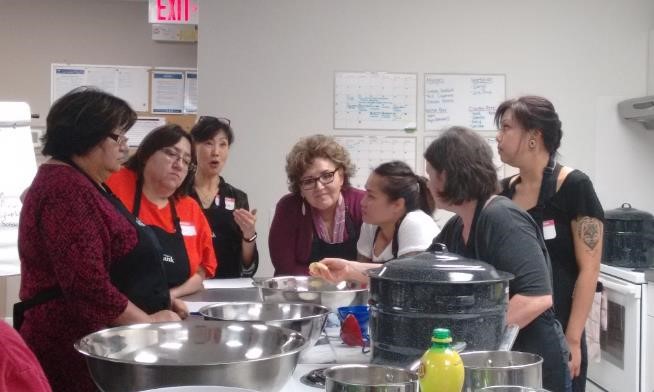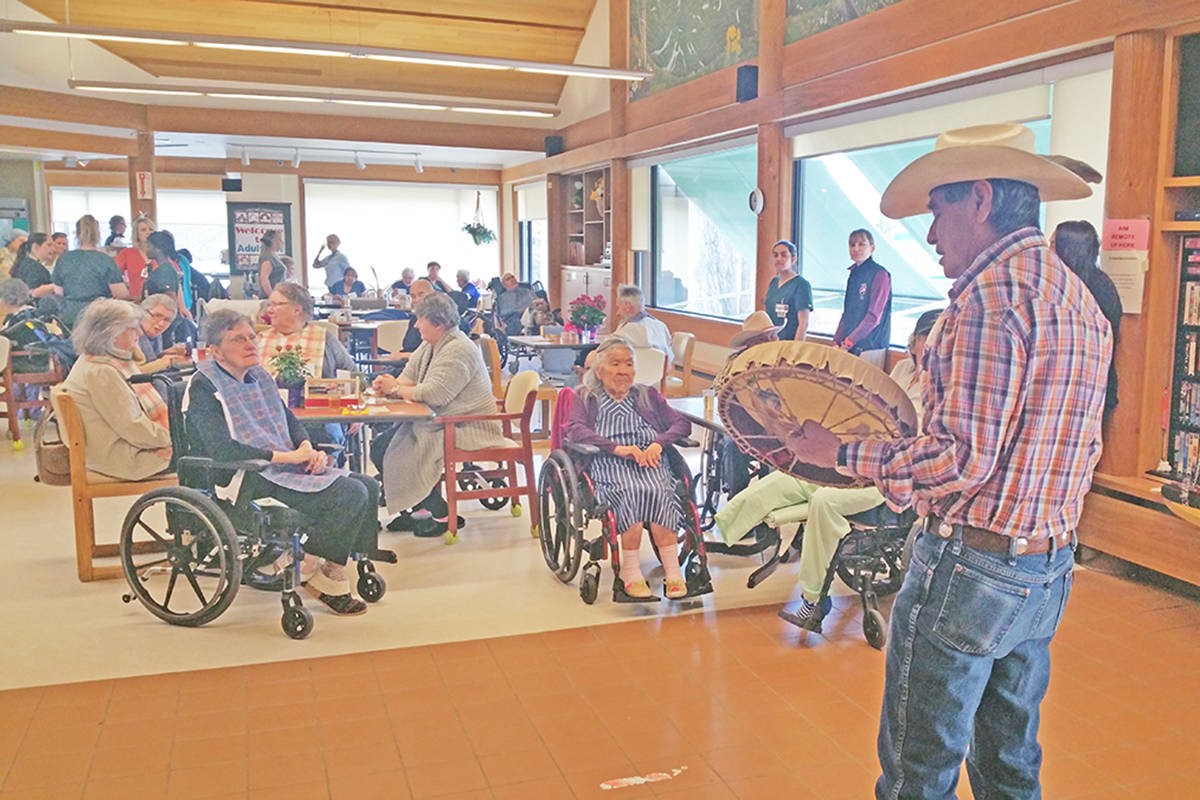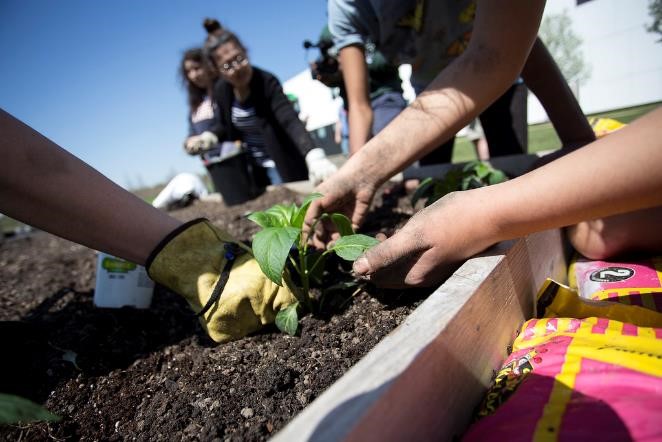
Blog post by Casey Neathway, Manager, Environmental Public Health Services
It's World Food Day today and food security and safety is one of the core program areas of our environmental health program. The best way to understand our work is by telling you about our blossoming relationships with communities, health partners and the federal government.
Recently, a cook in a community kitchen wanted to know how she could safely serve canned fish and game meat to the students in the school. And because of her trust in the First Nations Health Authority (FNHA), she turned to us for help.
She understood all about the nutritional, social, and spiritual benefits of students having access to traditional foods, but she also knew that if they weren't preserved correctly there was a risk of foodborne illness.
This initial request, and subsequent, similar requests from communities, were the impetus for a multi-departmental partnership in the FNHA to develop resources for safe community food preservation.
Strong working relationships between Environmental Health, Wellness Programs, Communications, and the Regions led to the development of a community-driven program that provided hands-on training and collaboration opportunities; print resources; and communications tools that allowed community champions to share ideas, recipes, and tips with one another.

It has truly been a relationship-based approach to developing supports for communities, with relationships within the FNHA family being developed and strengthened, and relationships between and within communities forming the foundation of the program's success.
Nations have continually told us that access to traditional foods, for children, elders, and all community members, is an area of huge importance. Unfortunately, regulatory barriers exist for many provincially-licensed facilities, where strict definitions of “approved foods" preclude hunted, gathered, and wild foods from being served. Breaking down these barriers isn't something that the FNHA can do on its own, and we need to work in partnership with other agencies and Nations to make these changes in a good way. Relationships between FNHA, the Ministry of Health, Regional Health Authorities, and communities are forming the basis of a working group that's looking at how provincial food safety legislation can be made more culturally safe to allow for the inclusion of these foods.
We have already seen one Nation have success by developing a productive working relationship with a regional health authority's nutrition and environmental health teams, leading to elders in a care facility having options for traditional foods on their menu. Access to traditional foods in an elder care setting isn't just about nutrition: those in care are often hundreds of kilometers away from their homes, their lands, and their families, in an unfamiliar and often culturally unsafe space, and may have language barriers. Having food available that forms even a small connection to home can provide additional comfort in an unfamiliar setting.
Traditional food sources and preservation methods are at continued risk from climate change, with growing seasons varying, wildfires and floods destroying habitats, and wind patterns shifting. After these concerns were raised with the FNHA, we were able to use our relationship with the National Collaborating Centre for Environmental Health to do thorough research into the risks and potential adaptations for communities. Relationships with environmental health programs across Canada allowed us to identify additional concerns from First Nations and Inuit communities in other areas, leading to a resource that can provide practical advice and scientific guidance for a larger number of Nations. Without these relationships, our approach wouldn't have been nearly as thorough or as broad.
All of the above examples are predicated on a key understanding: that relationships with food are about more than just getting your daily caloric needs. Food is ingrained in culture, and the relationships between people and communities.

Shared family or community meals; food as a part of celebrating or grieving; food as a way of welcoming newcomers to your neighbourhood – so many of our relationships are intrinsically connected to food. And with wild foods, the land, communities, culture, trade, and the animals that give themselves to become nutrition for humans, are all aspects of relationships with food. The work that we do at FNHA in supporting safe and sustainable food systems has to recognize these relationships, and remember that food is about more than just nutrition.


